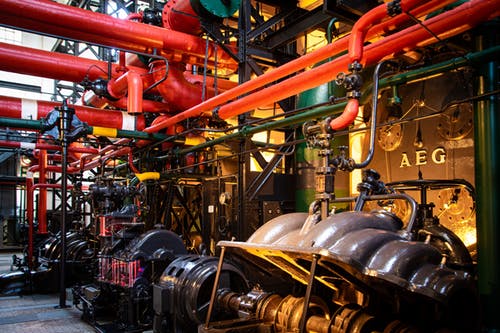Onsite Fuel Tanks for Construction Applications
Aside from storage transport, onsite fuel tanks are necessary for large-scale industrial construction. This includes mining, pipeline, powerline, gas, and oil applications. Any kind of job that requires long, tedious, and continuous operations need to have an onsite containment tank.
With the gamut of available fuel tank options in the equipment sales and rental market, finding the right kind of fuel storage solution for your business application can easily become an overwhelming experience.

Advantages of Onsite Fuel Containment Tanks
These liquid fuel storage systems are providing our industrial construction worksites with a wealth of benefits, including:
- Eradication of idle or downtime while on standby for the arrival of refuelling trucks.
- Price discounts and substantial fuel savings due to the bulk purchase of liquid fuel.
- It provides an elevated level of convenience for remote worksites, particularly those that are far-flung from urban centers.
- Ability to simultaneously provide required liquid fuel to a handful of industrial equipment.
Aside from being considered as an extended run tank, these liquid fuel storage solutions can be taken advantage of in transient applications as complete fuel systems.
Australian Storage and Onsite Fuel Tank Regulations
Before deciding to purchase and set up an onsite storage solution to your facility, make sure that you check out federal regulations and local bylaws.
Usually, the proximity of fuel storage systems to a handful of other site equipment, rules and procedures to follow for fluid containment and many other environmental aspects are outlined in the local government’s dedicated website.
If you are not aware yet, transporting fuel from one point to another is way too different from storing them. Thus, the implementing regulations surrounding such industrial activities are different, too.
Keep in mind that there are instances that laws are fickle, they tend to change, from one year to another. Therefore, for your own good, make it a habit to always check out local bylaws and federal regulations before initiating a new project. This way you can be assured that you are going to be in line with the current transportation and fuel tank storage regulation if there have been no implemented changes to it yet.
The equipment market here in Australia is offering us a handful of fuel storage and containment options. Every single one of them comes with their wealth of benefits, too. The fuel tank that will be best suited, and most appropriate to your particular industrial construction application would highly depend upon your business’ unique requirements.
Keep an Eye on Fuel Tanks for Possible Contamination
The moment that you open your tank for refilling, it acts as if it is a vacuum. It tends to suck out dust, dirt, debris, and any other unwanted and undesirable foreign matter into it. You need to know how to manage this, otherwise, it is going to brew a problem of unimaginable proportions for you. Treatments can be taken advantage of to prevent corrosion of your tank walls, it will also help keep gelling and plugging at bay. If you have distribution trucks, we suggest that you install a micron filtering system to it.
From time to time, we suggest that you test your liquid fuel’s water content level. There are a handful of available over-the-counter test kits that can be used for this purpose. If the results are indicating a high concentration of water, you should leave no stone unturned to remove it as quickly as possible.
A handy PVC pipe can be used to squeaky clean your tank, and an electric pump would prove to be very useful in suctioning out contaminants that may have settled at the bottom part of your tank.
And as part of your onsite fuel tank preventive maintenance plan, see to it that you have laid out a plan for regular fuel tests and inspections. This is the measure where you can be assured that you are in complete compliance with local, state, and federal laws.
Onsite Fuel Tanks for Construction Applications Read More »
